
The safety profile of trastuzumab deruxtecan among patients with HER2-expressing solid tumors in the phase 2 DESTINY-PanTumor02 trial appears to be comparable with previous reports of the agent.

Your AI-Trained Oncology Knowledge Connection!


The safety profile of trastuzumab deruxtecan among patients with HER2-expressing solid tumors in the phase 2 DESTINY-PanTumor02 trial appears to be comparable with previous reports of the agent.
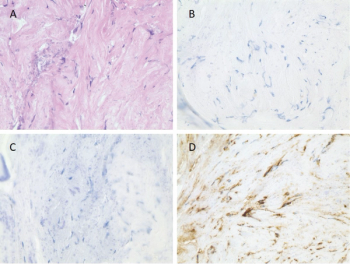
Investigators report a case of a man, aged 55 years, with an extensive and prolonged course of an unexplained multi-systemic disease, and also review common clinical manifestations, mutations, diagnoses, and targeted therapies for Erdheim-Chester disease.

How treatment paradigms regarding HPV-positive squamous cell carcinoma will evolve, particularly in the era of precision medicine, is a provocative question and is the subject of this review.

Flotufolastat F 18 is indicated for use in imaging PSMA-positive prostate cancer lesions in patients who are likely to have metastatic disease and may be able to undergo initial definitive therapy, as well as those who may have recurrent disease.

Lenvatinib in combination with pembrolizumab appears to raise no new safety signals in patients with advanced clear cell renal cell carcinoma after 4 years of follow-up in the phase 3 CLEAR study.
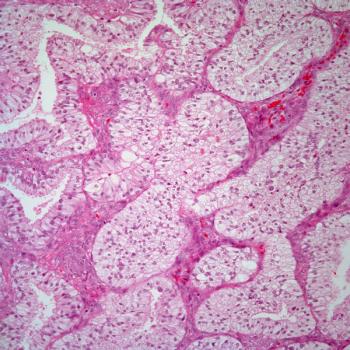
A progression-free survival benefit was seen in those with TP53 wild-type advanced/recurrent endometrial cancer who were treated with selinexor maintenance regardless of microsatellite instability status.

Camrelizumab and rivoceranib appear to be an appropriate novel, first-line regimen for unresectable hepatocellular carcinoma.
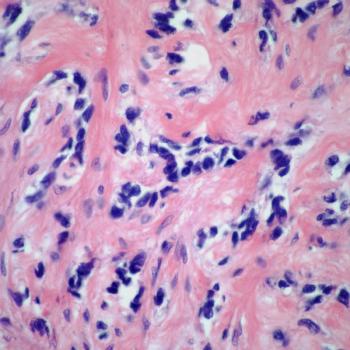
Sandra P. D’Angelo, MD, reviews current treatments in sarcoma, and how she interacts with her multidisciplinary counterparts to offer the best care to her patients.

JZP458 is part of a multi-agent chemotherapy regimen for lymphoblastic lymphoma and acute lymphoblastic leukemia, and can be used for adult and pediatric patients.

Key points from a discussion of the role of bispecific antibodies in the treatment of multiple myeloma.

According to Thomas E. Hutson, DO, PharmD, FACP, 4-year follow-up data from the phase 3 CLEAR study confirm the maintained benefits of lenvatinib plus pembrolizumab in patients with advanced renal cell carcinoma.

Key points from a discussion of the clinical data behind both BCMA- and non–BCMA-targeting bispecifics in multiple myeloma.

Investigators will submit data from the phase 3 ENHANCE trial evaluating magrolimab plus azacitidine in higher-risk myelodysplastic syndromes for presentation at a future medical meeting.
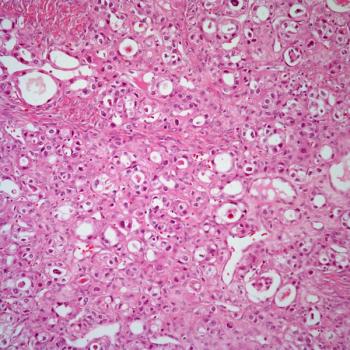
Data from the phase 3 PRIME trial show improved survival outcomes with frontline niraparib maintenance therapy among patients with advanced ovarian cancer.

Experts review treatment options for acute graft-versus-host disease and discuss data from post hoc analyses of the REACH2 trial.

Findings from the phase 3 MIRASOL trial support mirvetuximab soravtansine as a standard treatment option for platinum-resistant ovarian cancer, according to Ritu Salani, MD.

The European Commission will evaluate elacestrant in locally advanced or metastatic breast cancer after receiving a positive opinion on approval from the CHMP.

Rana R. McKay, MD discusses presentations of interest that were presented at the 2023 Kidney Cancer Research Summit, including a discussion on how PET imaging may identify which patients with renal cell carcinoma may respond to immunotherapy.

Thoracic radiotherapy appears to be tolerable and effective in a real-world cohort of patients with extensive-stage small-cell lung cancer.

Findings from the phase 3 KEYNOTE-811 trial support the CHMP’s recommendation to approve pembrolizumab plus trastuzumab in HER2-positive advanced gastric or gastroesophageal junction adenocarcinoma.

Data from a phase 1b dose escalation and expansion study highlight an encouraging duration of remission using APVO436 plus venetoclax and azacitidine in patients with acute myeloid leukemia.

Mikkael A. Sekeres, MD, discusses how data from the phase 3 QuANTUM-First trial may advance the treatment field for patients with newly diagnosed FLT3-ITD–positive acute myeloid leukemia.

Data from the phase 3 QuANTUM-First trial support the FDA’s approval of quizartinib for managing FLT3-ITD–positive acute myeloid leukemia.

The safety profile of pembrolizumab among patients with high-risk locally advanced cervical cancer in the phase 3 KEYNOTE-A18 trial appears to be consistent with previous reports of the agent.

Umbralisib in combination with ublituximab and venetoclax appears tolerable and yields responses in a small cohort of patients with mantle cell lymphoma.

The investigational antibody-drug conjugate ARX517 is currently under evaluation in patients with metastatic castration-resistant prostate cancer as part of the phase 1/2 APEX-01 trial.

Findings from the REBECCA trial support additional research for nurse navigation intervention for managing psychological vulnerability among patients with breast cancer.

Findings from a phase 2 study may inform the design of future trials assessing fecal microbiota transplants in patients with acute myeloid leukemia.

Selinexor plus ruxolitinib is under investigation as a treatment for JAK inhibitor-naïve patients with myelofibrosis as part of the phase 3 XPORT-MF-034 trial.
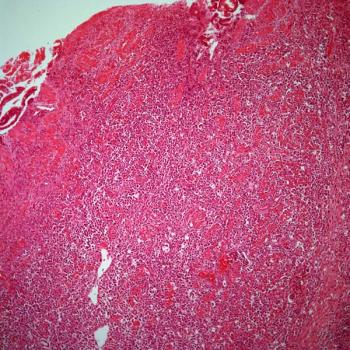
The addition of stereotactic radiotherapy to immune checkpoint inhibition appears safe but yields no significant survival benefit among patients with advanced solid tumors.